TrueDelta Updates August Reliability Stats
Thanks in part to the help of people from TTAC, TrueDelta received a record number of responses to July’s Car Reliability Survey—over 22,300. Updated car reliability stats have been posted to the site for 570 model / model year / powertrain (where warranted) combinations. With partial results for another 464 cars, the total is now over 1,000. These stats include car owner experiences through the end of June 2011, making them over a year ahead of some other sources.
Among 2011s for which we received enough responses, the redesigned Jeep Grand Cherokee is the only one that’s clearly worse than average thanks to common problems with the optional air suspension (also a common problem area in Mercedes SUVs), sunroof rattles, and a transmission shudder. Get one without the air suspension or the sunroof, and the risk of problems goes way down. The new Buick Regal might also be worse than average, but we have only limited data for this model so far.
The 2011 Fiesta improved to “about average” this time around, so there don’t seem to be many new problems with the car once the initial glitches are taken care of. We’ll have initial results for the 2011 Explorer and 2012 Focus the next time around, in November, with a preview for participants in October. Most new or revised models for which we received enough responses are also near the average, including the BMW 5-Series, BMW X5 / X6, Chevrolet Cruze, Ford Edge, Honda Odyssey, Hyundai Sonata, Infiniti M, Kia Sorento, Nissan JUKE, and Volkswagen Jetta.
Three new 2011s clearly had clean starts: the Honda CR-Z, Hyundai Elantra, and Toyota Sienna.
We’ve also updated statistics for the percentage of cars that required no repairs or 3+ repair trips in the past year. These statistics can be more useful than the averages.
We’ll update these stats again in November. The more people participate, the more models we can cover and the more precise these results will be.
To view the updated results:
Car Reliability Survey results
Come across something interesting? Have a question? Post it in the comments.
Michael Karesh operates TrueDelta, an online source of automotive reliability and pricing data.
Michael Karesh lives in West Bloomfield, Michigan, with his wife and three children. In 2003 he received a Ph.D. from the University of Chicago. While in Chicago he worked at the National Opinion Research Center, a leader in the field of survey research. For his doctoral thesis, he spent a year-and-a-half inside an automaker studying how and how well it understood consumers when developing new products. While pursuing the degree he taught consumer behavior and product development at Oakland University. Since 1999, he has contributed auto reviews to Epinions, where he is currently one of two people in charge of the autos section. Since earning the degree he has continued to care for his children (school, gymnastics, tae-kwan-do...) and write reviews for Epinions and, more recently, The Truth About Cars while developing TrueDelta, a vehicle reliability and price comparison site.
More by Michael Karesh
Latest Car Reviews
Read moreLatest Product Reviews
Read moreRecent Comments
- ToolGuy I could go for a Mustang with a Subaru powertrain. (Maybe some additional ground clearance.)
- ToolGuy Does Tim Healey care about TTAC? 😉
- ToolGuy I am slashing my food budget by 1%.
- ToolGuy TG grows skeptical about his government protecting him from bad decisions.
- Calrson Fan Jeff - Agree with what you said. I think currently an EV pick-up could work in a commercial/fleet application. As someone on this site stated, w/current tech. battery vehicles just do not scale well. EBFlex - No one wanted to hate the Cyber Truck more than me but I can't ignore all the new technology and innovative thinking that went into it. There is a lot I like about it. GM, Ford & Ram should incorporate some it's design cues into their ICE trucks.



















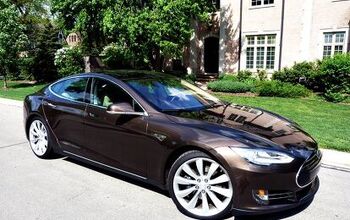

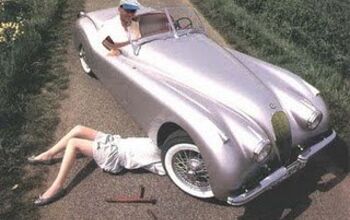
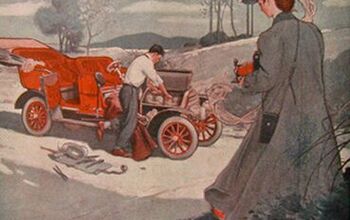
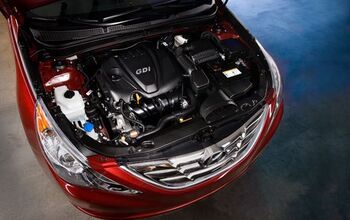




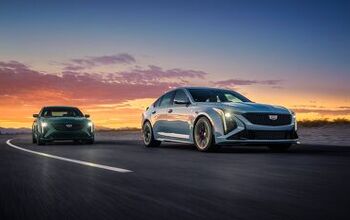


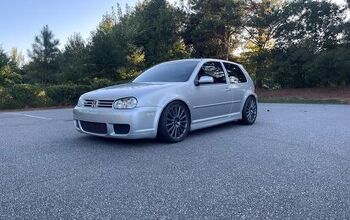

Comments
Join the conversation
The current statistics equally count repair trips in which a problem of any severity was successfully fixed. This is a very robust metric, which is very helpful when working with small sample sizes. Nearly a year ago I added a more detailed severity question to the survey. Once we have a year of data with this question (i.e. next time) I'm going to attempt to look at severe problems alone, as measured by how essential were they to the operation of the car. Or maybe I'll still include all problems, but weight them. The danger here is that the more rare something is--and breakdowns that leave people stranded are rare for fairly new cars--the larger the sample size you need to precisely measure it. If you have only one or two breakdowns reported, these could be flukes. So I won't be able to provide these stats for nearly as many models. The components that most often force a tow are the alternator, starter, and battery. We don't even count the last as a battery's lifespan depends very much on how well it is treated. They're also fairly cheap to replace. Other parts, like radiators, water pumps, fuel pumps, and wheel bearings, tend to provide enough warning that people get to the shop before the car stops running (unless the driver ignores the signals). And outright engine or transmission failures? They're exceedingly rare. Even when these are replaced on a car with under 120k miles on it it's usually because of high oil consumption or difficulty shifting, not because of a total failure that requires a tow.
Thanks for posting these results. We participate in the survey with our two cars - a 2003 Accord EX and 2005 Focus SE - and both of our particular cars appear to be more reliable than the survey results would indicate. Our mileage is considerably higher than the average mileage for both cars, too.